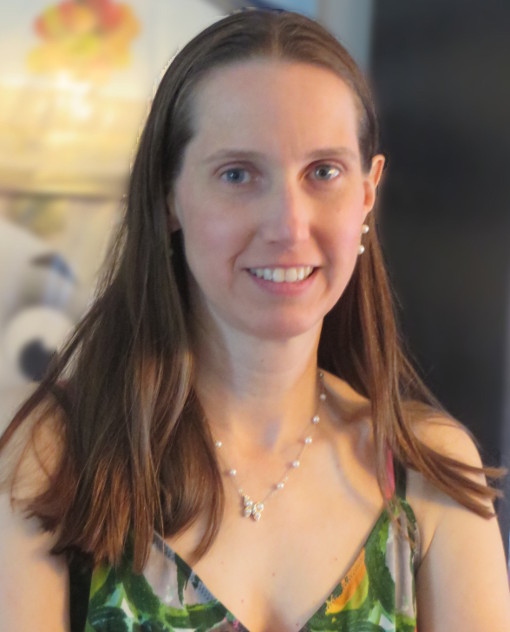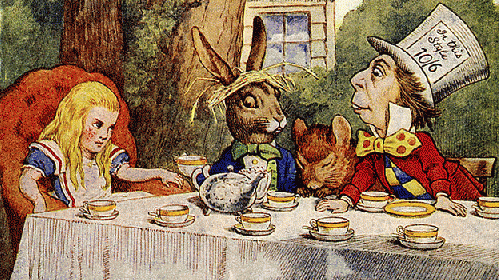Five things that critics got wrong about Alice in Wonderland, and one critic who is on the right track.
This piece is actually a critique of the critiques of the movie Alice in Wonderland, book by Lewis Carroll, screenplay by Linda Woolverton, and direction by Tim Burton. Overall, I thought the movie was enjoyable, imaginative and enlightening. I was also surprised to find some moments of heartfelt feminism.
In looking over the reviews of the movie on line, I found a surprising lack of understanding, and some dismissive negativity, about the movie. Much--but not all--of the response was related to the issue of feminism in the film.
1. The litmus test for feminism is not the female star.
It is amazing, that when calculating if Alice in Wonderland was feminist or not, nearly all critics focused solely on the character and adventures of the female protagonist/hero. A somewhat right-wing and didactic critique at Decent Films writes, "Alice embodies the gender feminist narrative of vibrant young girls losing their mojo as they come of age in patriarchal society." The women's magazine, Jezebel, while praising the movie as "refreshingly feminist" seemed to notice only that the hero who fights against the forces of evil is a woman. Jezebel mentions other characters, but does not take the time to catalogue their relationship to feminism. In an Associated Content piece by Adriana Tanese-Nogueria which does, commendably, explore the feminist theme much more richly than many other reviews, still, the main focus is on Alice's journey of feminist liberation.
Feminism is much deeper than a bunch of strong-willed, empowered women taking on roles usually reserved for men. Feminism includes creating a society that is less patriarchal--meaning: less sexist, less top-down, and more compassionate. Feminism means working for a world where neither men nor women are forced into stringent gender roles. Celebrated feminist bell hooks has written about the deeper meanings of feminism. hooks says, "Feminism is a movement to end sexist oppression". And, hooks explores how "Feminist liberation is linked to a vision of social change which challenged class elitism." [Both quotations from the article "Feminist men: friends of foes?"]
So, in order to decide if this movie is feminist or not, critics should be looking at a wide variety of measures: Are the women characters forced into certain gender roles? Are the men characters forced into certain gender roles? What are the quality of the relationships between the sexes? Is there sexist oppression in the narrative? Does the movie critique sexist oppression? How is class oppression addressed (or ignored) throughout the movie? Most critics ignored all of these questions except the first and most obvious one.
2. Despite her girl power, Alice is not the most feminist character in the movie. The most feminist character in Tim Burton's Alice in Wonderland is the Mad Hatter.
There is a big controversy in feminist literature over whether a man can be "a feminist" or not. I would like to sidestep that discussion to some degree, since The Mad Hatter has no reason to assert that he is a feminist.
I think that it may be easier to see, that in order to have a feminist society, men will have to act differently than they do in a patriarchal society. For that reason, when looking at any work of fiction, determining if it is feminist should include evaluating if there are any male characters who model the kind of behavior towards women that feminists would value. And, in this measure, I think that the Mad Hatter fits the bill, as a non-sexist, woman-supportive, feminist-minded, male character.
The Mad Hatter is a positive force for a feminist society for a variety of reasons. He is kind to Alice, who is both female and a young person. He is supportive of women in leadership roles: He is a supporter of the White Queen (a woman leader, and the better royal in the movie) and a supporter of Alice. In addition, The Mad Hatter models feminist and non-coercive support for Alice, because he does not demand that Alice battles the Jabberwocky, but asks reflective questions and offers her support as she decides what to do.
Furthermore, The Mad Hatter does not judge people based solely on gender. He is as willing to dislike the Red Queen, with her bad character and bad behavior, as he is to admire Alice and The White Queen.
I know that Johnny Depps' portrayal of The Mad Hatter has depth, because my husband and I both came to entirely different conclusions about who he represented. Though, both conclusions showed how positive The Mad Hatter was for Alice. My husband thought that The Mad Hatter was an idealized version of a mate for Alice who would be better, kinder, and more supportive than that of the Lord who had proposed to her. I thought that the Mad Hatter represented the ghost of her father, offering her guidance and support.
Besides his relationship to women specifically, The Mad Hatter also expresses a move towards a feminist society because he is an agent of social revolution. He does not approve of actions of the Red Queen that demean others. And, he recognizes the pandering of the courtiers to the Red Queen (and later exposes it.)
3. Contrary to some critics, Alice's naming of the new place "Underland" is not superficial or a mistake.
(Note: You can view every article as one long page if you sign up as an Advocate Member, or higher).






